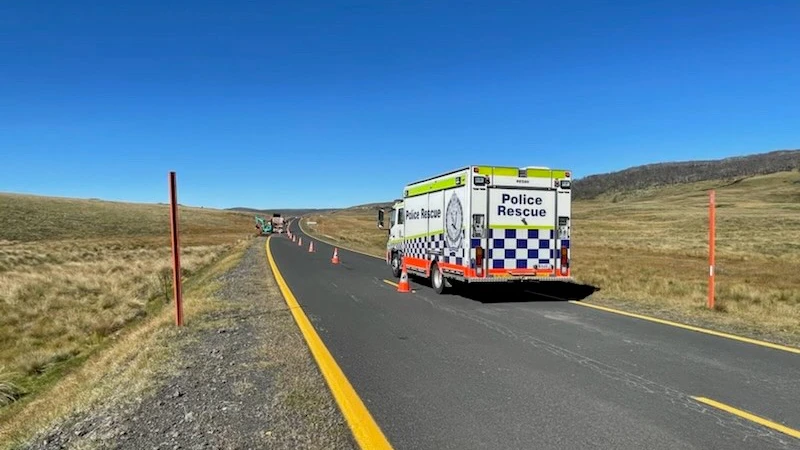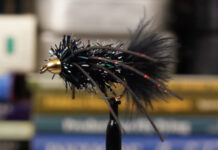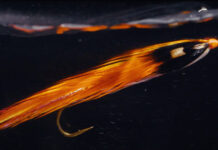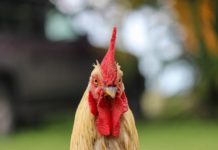Locals who want to learn how to cast a line only have to venture down to the Pechmann Fishing Education Center on Raeford Road. The center offers programs to people of all ages who want to learn the ins and outs of fishing. It is the only education center of its kind in the state, and all classes and programs are free to the public.
The land the center currently sits on has been a hatchery for nearly a century, according to Fishing and Aquatic Education Manager Thomas Carpenter from the Wildlife Education Division, NC Wildlife Resources Commission. Private hatcheries were the norm before the wildlife commission came into existence in 1947. These private hatcheries helped to stock the local ponds and lakes with fish.
The commission took over that job, and the hatchery on Raeford Road began focusing on striped bass production, which it did from 1964 until the late 1980s. At that point, the hatchery was turned into a depot.
In 1994, Cumberland County Ducks Unlimited held a Greenwing event for kids at a local lake. They had over 100 children show up to the event but only managed to catch one fish. The head of the Greenwing program at the time, Lee Warren, reached out to the NC Wildlife Resources Commission and asked if they could hold their next event at the hatchery in Fayetteville. John Pechmann, a Fayetteville lawyer on the commission and a friend of Warren’s, helped bring the Greenwing event to the hatchery.
It was a wild success, and the commission began to think of how they could use the hatchery as an education center. Plans and programs began to form, and in 2004, plans for the actual education center came into fruition. The center was named for John Pechmann in 2005 and was officially opened to the public in 2008.
Currently, the center hatcheries house catfish, bass and bluegill fish. In the winter, when the water is colder, and they can support the population, trout are brought in from the Bobby N. Setzer State Hatchery in Pisgah National Forest. Trout is a popular fish for fly fishing, and the center holds classes concentrated on the sport.
“I love all types of fishing, but I’ve really migrated toward our fly fishing programs,” said Carpenter. “It’s growing pretty rapidly, and it really appeals to younger kids, younger people.”
“We have a young woman on staff who has created a group called Reel Women Fishing Adventures. We are trying to get more women to do these things, and fly fishing seems to be one of those things that they want to try.”
Carpenter has been working with the center since 2009 when he started as a temporary educator. In 2015, he became the director.
“We are completely focused on getting people into fishing, and we are following some principles that are being developed by a national movement called R3,” Carpenter said.
R3 stands for recruitment, retention and reactivation. The purpose of the conservation campaign is to help people rediscover hunting and fishing.
“(We are ) trying to increase the number of licensed anglers because those anglers are what provide us the economic backbone for our conservation activities,” said Carpenter.
An excise tax is exacted on fishing tackle and equipment, a tax that is then paid into the fish and wildlife service. This money is allocated to each state based on population density and the number of licenses within the population.
“We are able to use the money for habitat restoration, management activities like stockings and species research and management, and boating and fishing accesses,” said Carpenter. “Another portion of it is available for education. It’s kind of a big circle which equates to better fishing and facilities for people.”
The Pechmann Fishing Education Center holds numerous classes throughout the month. On May 19 and 20, the staff will be holding an Introductory Fishing for Adults class.
“We missed generations of people who may want to try fishing, and now they are a bit older and thinking about it, so we are breaking down the basics of everything to hopefully get them more into fishing,” said Carpenter.
On May 21, a fishing and cooking class will be held, teaching attendees how to catch fish and how to clean and store them for the best flavor. The day will conclude with a cooking class, showing students how to cook fish in various ways.
Camps will be held throughout the summer, starting May 26, for kids ages 12 to 15; the camps will focus on catching bass with natural baits.
In June, the center will hold a virtual class entitled “Hook, Line and Picture.” The purpose of the course is to teach people how to take great fishing photos.
“We are trying to help people create some really great memories,” said Carpenter.
Classes are free to attend, and those interested in going to classes at the center should register at www.ncwildlife.org/Learning/The-John-E-Pechmann-Fishing-Education-Center/EventRegistration. Interested individuals can also see a calendar of events on the website.
Fishing licenses are not needed to attend the center’s events; however, would-be-anglers can get a fishing license at https://deq.nc.gov/about/divisions/marine-fisheries/licenses-permits-and-leases/recreational-fishing-licenses.
Credit: Source link































